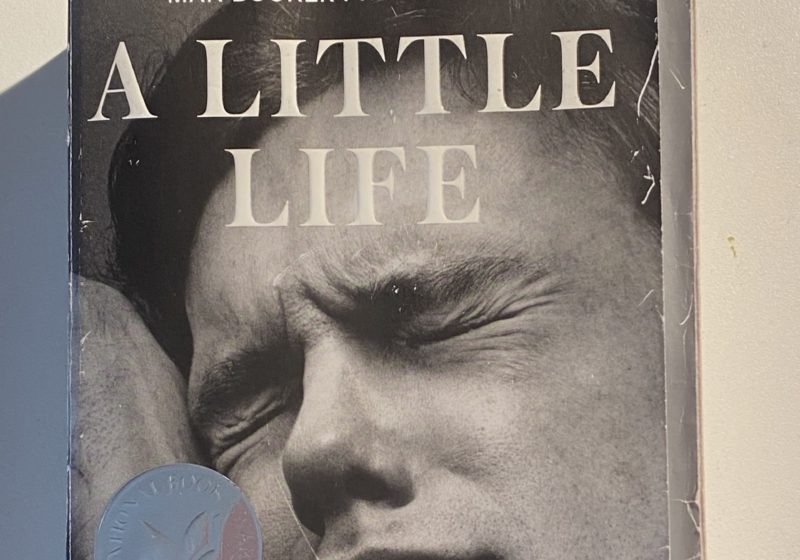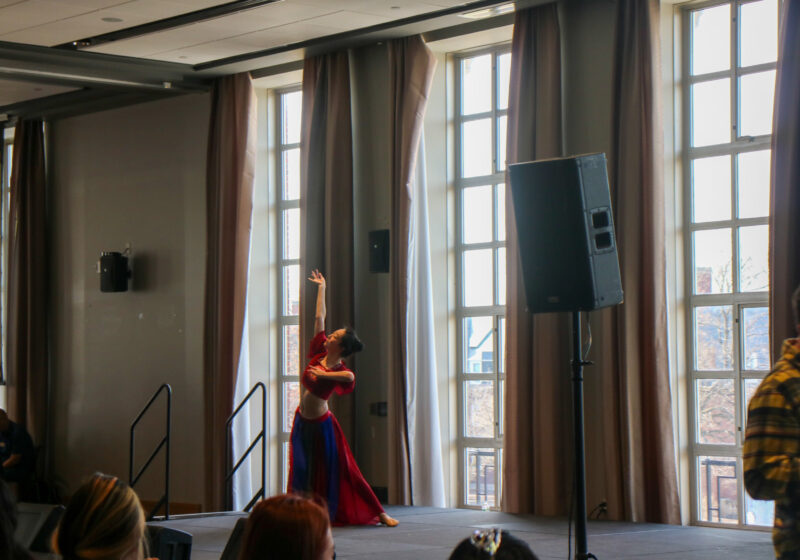Hello, lovers. Welcome (back) to campus, and welcome (back) to my column, “Liv on the Edge.” This is a safe space in which I dissect things I love — like movies, music, books, relationships, and politics — and things I’ve been thinking about recently — like anxiety, the end of the world, and getting older, among other things.
This summer, I spent the majority of my time at home in Illinois, contemplating my mental health and reading books in the safety of my childhood bedroom. It’s a strange, emotional landscape, the childhood bedroom — and, in my opinion, the best place to read Hanya Yanagihara’s harrowing novel “A Little Life.”
“A Little Life” is about childhood, and about adulthood, and addiction, and sexual abuse, and love, and, of course, life itself. The novel chronicles the lives of four adult men in New York City throughout several decades, bound to each other by their intense platonic love. It is one of the few novels I’ve ever encountered that focuses on male friendship, and one of even fewer novels that addresses life and love in such a complete form.
Released in 2015, the book was originally met with critical acclaim and ended up as a National Book Award Finalist. In the years since, however, criticism has arisen over Yanagihara’s too-strong obsession with difficult themes. It’s a whopping 814 pages, and each page gets harder and harder to swallow. Recently, one of my Creative Writing professors reached out and asked what I had been reading this summer. “A Little Life,” I told her. “Ah,” she responded. “The novel that breaks friendships apart.”
Indeed, one of the reasons I purchased “A Little Life” was for its mixed reviews I read online. In The New Yorker, critic Jon Michaud argues that such mixed reviews are a product of Yanagihara’s presentation of graphic violence. One of the main characters, Jude, suffers from extreme depression and harms himself repeatedly throughout the novel. Yanagihara does not mention this as fact, however — she demonstrates it in scene, and continues to demonstrate it in scene, until the end of the novel. Jude’s self-mutilation, Michaud writes in his 2015 article “The Subversive Brilliance of ‘A Little Life,’” “is described with a directness that might make some readers queasy […] the graphic depictions of abuse and physical suffering that one finds in ‘A Little Life’ are rare in mainstream literary fiction.”
Sexual abuse is another violence presented throguhout Yanagihara’s book. In order to avoid spoiling the slow, simmering reveal of the characters’ backstory, I won’t mention which of the characters endure such abuse, but it is written in such vivid detail that I found myself needing to close the novel and put it down for a while. Not only is the abuse itself difficult to read, but it’s made even more difficult by Yanagihara’s tactic of mercilessly ripping away a character’s carefully detailed backstory and childhood with one foul act of violence without mercy. “What makes this book’s treatment of abuse and suffering subversive,” Michaud writes, “is that it does not offer any possibility of redemption and deliverance beyond these tender moments. It gives us a moral universe in which spiritual salvation of this sort does not exist.”
Since such spiritual salvation does not exist, Yanagihara seems to argue, then we can only derive meaning from our lives as we live them — from our friends, from our art, and from our lovers. The four main characters are artists, and the book is permeated with otherworldly details about art and beauty. There are also prominent gay characters, and the book is wrought with conversations about queerness and love. These conversations do not seize the foreground of the novel, however. They’re only one ingredient of the ultra-emotional soup that is “A Little Life.”
Because of this, some have hailed the novel as an “astonishing and ambitious chronicle of queer life in America” — as Garth Greenwell did in his 2015 Atlantic article “A Little Life: The Great Gay Novel Might Be Here.” Of the four main characters, Greenwell writes, only one of them “unambiguously embodies an immediately recognizable and unambivalent gay identity.” Yanagihara refuses to explicitly label the other three as one sexuality or another, which, Greenwell argues, warrants its position as the great gay novel of the century.
Additionally, Yanagihara refuses to define the time period in which the novel takes place — there is no reference to the current president or political era, thus forever suspending the story in time and sparing the characters from, as Greenwell writes, “the familiar narratives of gay fiction” like the anxiety faced in the wake of the AIDS epidemic or the uncertainty/frustration enduring during political arguments about gay marriage and mainstream acceptance. The characters just are — they live, breathe, and exist as realistically and wholeheartedly as you and I.
“A Little Life” is extremely dark and depressing, and although it completely destroyed me, it also completely changed my perspective on life. These are the most vivid, realistic characters I have read in a work of fiction in a long time, and, despite the fact that their little lives are painted in the immense beauty of Yanagihara’s writing, they still are just that — little lives. As we embark on this new school year, I urge you to pay attention to the aspects of your life that give it meaning, even if they are very little.






